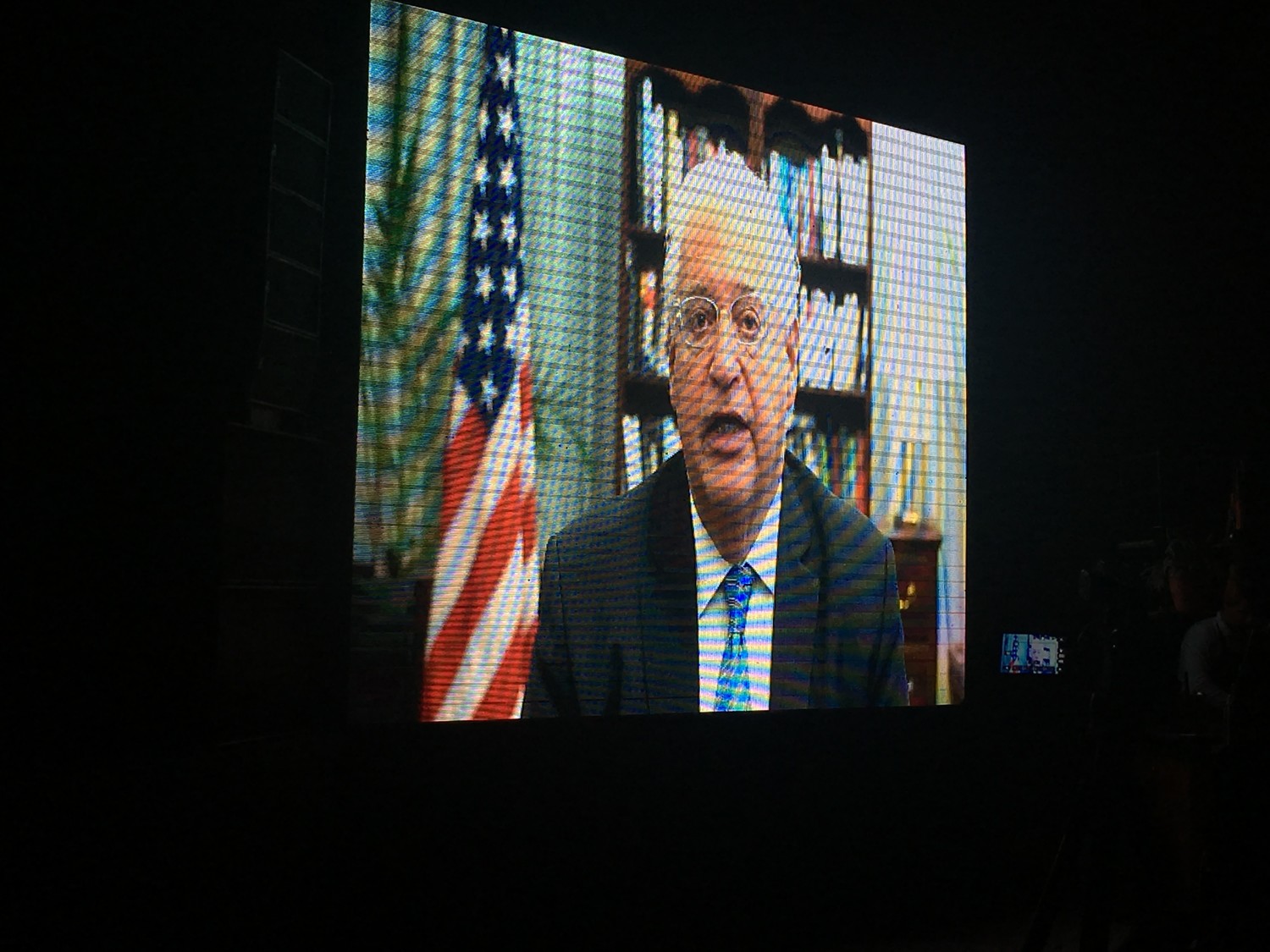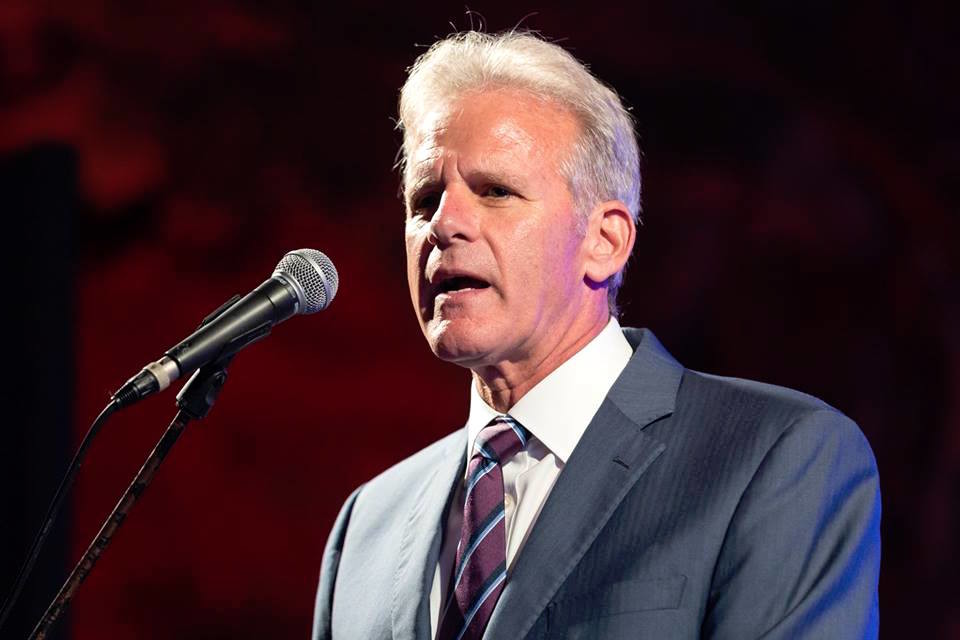At Jerusalem media summit, Oren and Friedman hail Trump — but it won’t last forever
JPost's Caroline Glick rips leftist Jews for failing to fight left-wing anti-Semitism
JERUSALEM — Former Israel Ambassador to the United States Michael Oren cautioned that although President Trump heads “the friendliest administration this country has known since its founding in 1948, we can’t lose track of the fact that this administration will not be in the White House indefinitely.”
Speaking at the opening of the Jewish New Media Summit here on Sunday night, Oren said it was important for Israel to seize the moment.
The Jewish state should deal with Hamas “at a time when we have this friendly administration in Washington,” he said. “And do it now when we have close relationships with our Sunni neighbors in the region.”
Nevertheless, as a member of Prime Minister Benjamin Netanyahu’s team, he supported Netanyahu’s reluctance to fully confront Hamas during a recent flare-up. The prime minister’s decision was both difficult and responsible, a better alternative than falling into what he saw as a trap set by Iran or the Palestinian Authority, he said.
While he has “no doubt that the IDF will take care of Hamas — the question is what happens the day after,” Oren said. “How can we assure that a Hamas-like regime once again will not take over the Gaza strip?”
“Even when the IDF would be successful in ousting Hamas from the Gaza strip, we’d be left holding the seven keys to Gaza and we’d be sitting there saying, OK, who’s going to take the keys to Gaza, and nobody would have taken those keys,” he said.
The summit, hosted by the Israel Goverment Press Office, drew about 160 Jewish journalists from around the world to four days of intensive examination of issues affecting Israel and the Diaspora.
Speaking by video from the United States, U.S. Ambassador to Israel David Friedman said that “a day does not go by when I don’t thank G-d for the privilege of being the first U.S. ambassador to serve his country from this holy city.”
Proclaiming that under President Trump “the US-Israel relationship is the closest it has ever been,” Friedman said, “We are blessed to have a president who embraces the truth, whether with regard to Jerusalem, with regard to Iran’s malign activities or with regard to the anti-Israel bias at the United Nations.”
“The United States stands with Israel and supports Israel’s right to defend itself against attacks of all kinds — whether military attacks from Hamas rockets or verbal attacks in international forums,” he said.
Departing from Trump’s Twitter mantra, Friedman praised his audience of journalists. “As journalists, you are the vanguards of the truth,” he said, adding that “the United States never fears the truth and neither does Israel.”
Both Friedman and Oren referenced the massacre in Pittsburgh. Friedman was critical of media coverage that emphasized divisions.
“We have much more that unites us than divides us,” he said. “To honor the memory of the victims let us redouble our efforts to love each other, to respect each other, and most importantly to unite against the true forces of hatred and evil and eradicate them forever.”
On Monday morning, during a panel discussion on the Modern Faces of Anti-Semitism, Jerusalem Post columnist Caroline Glick called traditional race-based anti-Semitism a throwback to the 19th and early 20th centuries when race dominated national thinking.
But today, when “the gestalt is globalism and post-nationalism,” Jewish nationalism is an obvious target. And she blamed the Jewish left for failing to fight back because, she said, it “won’t see anti-Semitism on the left.”
Referencing Airbnb’s decision to exclude Jews in Judea and Samaria from its service, Glick said that “empowered, well-financed, well-platformed Jewish intellectuals, whether in the U.S. or Israel, are insisting that certain Jews deserve to be hated and persecuted and that there’s something essentially legitimate about dehumanizing them and saying that they don’t have basic human rights, including rights to property and the right to live.”
Glick cited the recent election of three Democratic radicals to Congress, “two of whom, perhaps a third — she was so incoherent it was hard to tell — who literally oppose the existence of Israel. This is deeply discriminatory against Jews and yet you don’t have Jews on the left who are decrying this in a consistent, coherent and competent way because it’s too ideologically and socially expensive.”
Every form of anti-Semitism is dangerous, she said, as she listed four types she found to be prevalent in the United States — race-based white supremacist, the Nazi form; Islamic jihadist; black nationalist; and, especially toxic in her view, multicultural globalist.

 48.0°,
Overcast
48.0°,
Overcast 









